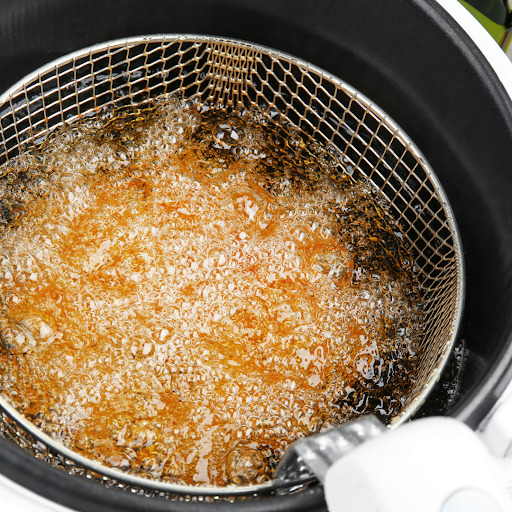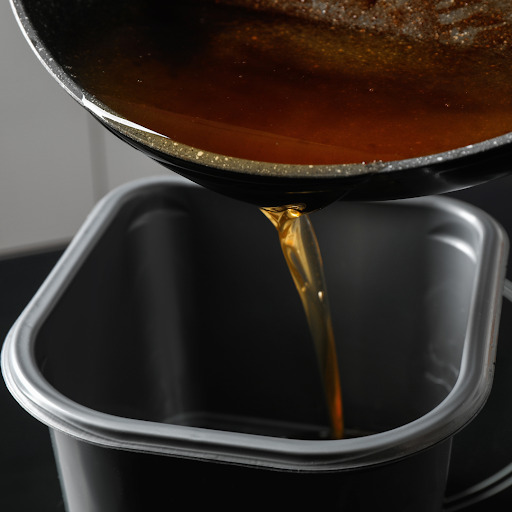Spring and summer bring with them enjoyable activities – outdoor cookouts, backyard barbecues, and gathering with family and friends. But once it’s all said and done, there’s a challenge of figuring out what to do with leftover cooking grease and oil from the evening’s festivities. It can be difficult to decide whether to dispose of cooking grease and oil in the garbage or find some sort of sustainable way for disposal. If you’re trying to figure out how to safely remove excess grease and oils used during summer fiestas without harming the environment or your plumbing and drains, keep reading! We have put together a few simple tips that will help you choose a safe disposal method right away.
Safe Grease and Oil Disposal Tips:
 Dispose of Oil/Grease in a Container with Lid or Sealed Plastic Bag
Dispose of Oil/Grease in a Container with Lid or Sealed Plastic Bag
For easier disposal, pour the grease into an old container such as a jar with a lid or a sealed plastic bag. This method not only makes it easy to throw away, but it also helps prevent any accidental spills or leaks. By disposing of cooking grease properly, you keep your pipes clear of clogs, protecting your home.
Grease: Let it Cool & Then Dispose
Another simple tip for grease is to set up a bowl lined with either parchment paper or aluminum foil. Pour the grease carefully into the bowl and set it aside. Allow it to cool and harden, put it in a sealed container or bag, and toss it into the garbage.
Recycle Used Cooking Oils & Greases with Your Local City
You can collect the oil in a container and take it to a local collection facility or drop-off point. These facilities have the necessary equipment to collect and recycle the oil, turning it into biodiesel and other useful products. We’ve included a list of a few local facilities in the Ft. Collins area that will accept your cooking oil:
-
-
-
- City of Fort Collins: Timberline Recycling Center – Hard to Recycle Materials Yard
- Larimer County Household Hazardous Waste Facility
- City of Loveland Recycling Center
- Eco-Cycle CHaRM (Center for Hard-to-Recycle Materials)
-
-
Reuse Cooking Oils in Your Own Kitchen

What you should NOT do with your leftover grease and cooking oil:
It is important to avoid pouring grease or cooking oil down the drain. Although it may seem like an easy solution, it can result in a variety of problems. When grease cools, it solidifies and accumulates in your pipes, leading to blockages, leaks, and even burst pipes.
On the other hand, there are certain cooking oils like vegetable, canola, and olive oils that do not solidify but instead congeal and coat the inside of the pipes. Over time, this can catch other items and potentially cause a backup. Therefore, it’s best to dispose of cooking oil and grease in the trash or recycle them properly.
At the end of the day, leftover grease and oils from summer cookouts can be a hassle to dispose of, but it’s important to do so properly to avoid causing damage to the environment or your home. Remember to let the grease and oils cool down, store them properly in a container and then dispose of them, or find a local recycling center. These simple steps will help keep your home and the environment safe and clean.
If you believe your pipes may be clogged from pouring grease or oil down the drain, call Lion Home Service at (970) 551-6987 for service you can trust.


 Dispose of Oil/Grease in a Container with Lid or Sealed Plastic Bag
Dispose of Oil/Grease in a Container with Lid or Sealed Plastic Bag






